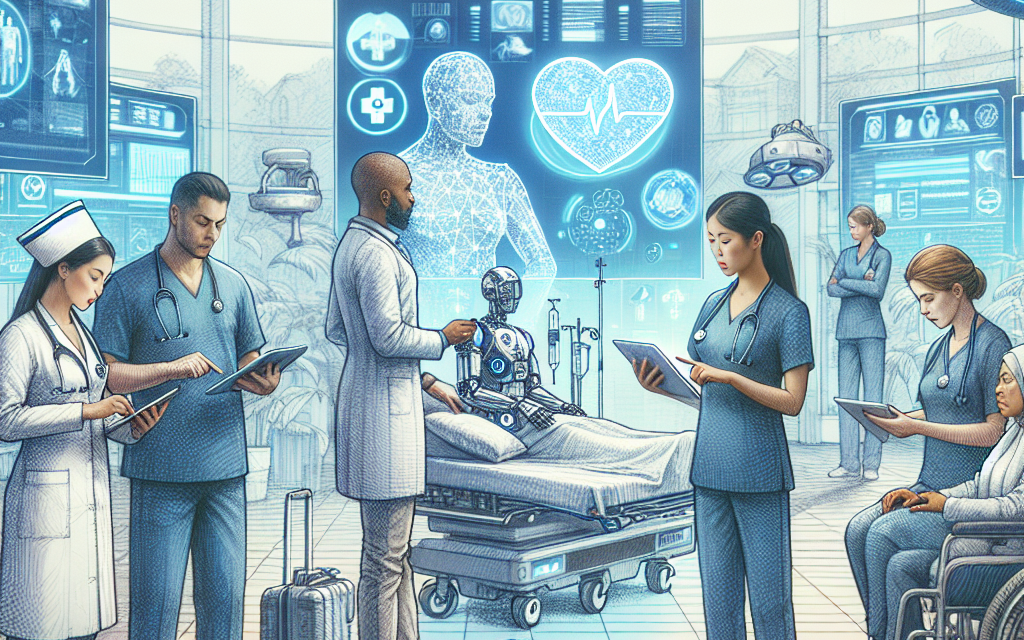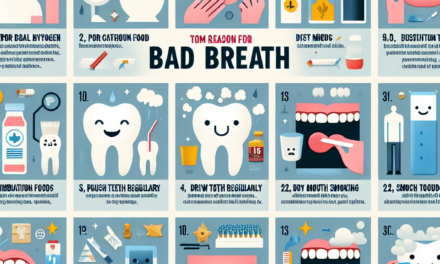Envisioning 2030: The Evolving Role of Nurses in Healthcare
The healthcare landscape is undergoing a profound transformation, driven by technological advancements, demographic shifts, and evolving patient needs. As we look toward 2030, the role of nurses is set to evolve significantly, positioning them as pivotal players in the delivery of healthcare. This article explores the multifaceted roles of nurses in the future, examining five key areas: technological integration, leadership and advocacy, patient-centered care, global health initiatives, and education and professional development.
Technological Integration in Nursing
As technology continues to advance at an unprecedented pace, nurses are increasingly required to adapt and integrate these innovations into their practice. By 2030, the role of nurses will be heavily influenced by the use of artificial intelligence (AI), telehealth, and electronic health records (EHRs).
The Rise of Telehealth
Telehealth has gained significant traction, especially in the wake of the COVID-19 pandemic. By 2030, it is expected that telehealth will be a standard component of healthcare delivery. Nurses will play a crucial role in facilitating virtual consultations, monitoring patients remotely, and providing education on the use of telehealth technologies.
- Remote Patient Monitoring: Nurses will utilize wearable devices and mobile health applications to monitor patients’ vital signs and health metrics in real-time, allowing for timely interventions.
- Patient Education: Nurses will educate patients on how to use telehealth platforms effectively, ensuring they can access care without barriers.
- Data Management: With the integration of AI, nurses will be responsible for interpreting data generated from telehealth visits and making informed decisions based on this information.
Artificial Intelligence in Nursing
AI is set to revolutionize nursing practice by enhancing decision-making processes and improving patient outcomes. By 2030, nurses will work alongside AI systems to analyze patient data, predict health trends, and personalize care plans.
- Predictive Analytics: Nurses will leverage AI tools to identify patients at risk for complications, enabling proactive care interventions.
- Clinical Decision Support: AI algorithms will assist nurses in making evidence-based decisions, reducing the likelihood of errors and improving patient safety.
- Workflow Optimization: AI will streamline administrative tasks, allowing nurses to focus more on direct patient care.
Electronic Health Records (EHRs)
The transition to comprehensive EHR systems has already begun, but by 2030, these systems will be fully integrated into nursing practice. Nurses will be responsible for maintaining accurate and up-to-date patient records, which will be essential for coordinated care.
- Interdisciplinary Collaboration: EHRs will facilitate better communication among healthcare teams, allowing nurses to collaborate more effectively with physicians, pharmacists, and other healthcare professionals.
- Data Security: As custodians of sensitive patient information, nurses will need to be well-versed in data privacy regulations and cybersecurity measures.
- Quality Improvement: Nurses will use data from EHRs to identify trends in patient care, contributing to quality improvement initiatives within healthcare organizations.
Leadership and Advocacy in Nursing
As the healthcare system evolves, the need for strong nursing leadership and advocacy will become increasingly important. By 2030, nurses will be expected to take on leadership roles that influence policy, drive change, and advocate for patients and the profession.
Nursing Leadership Models
Leadership in nursing is not limited to formal positions; it encompasses a range of roles that influence practice and policy. By 2030, nursing leadership models will emphasize collaboration, shared governance, and interprofessional teamwork.
- Transformational Leadership: Nurses will inspire and motivate their colleagues to embrace change and improve patient care through innovative practices.
- Shared Governance: Empowering nurses to participate in decision-making processes will enhance job satisfaction and improve patient outcomes.
- Mentorship Programs: Experienced nurses will mentor new graduates, fostering a culture of leadership and professional development.
Advocacy for Policy Change
Nurses have a unique perspective on patient care and the healthcare system, making them essential advocates for policy change. By 2030, nurses will be more actively involved in shaping healthcare policies at local, state, and national levels.
- Health Equity: Nurses will advocate for policies that address social determinants of health, ensuring equitable access to care for all populations.
- Workforce Development: Advocacy efforts will focus on addressing nursing shortages and improving working conditions to retain skilled professionals.
- Public Health Initiatives: Nurses will lead efforts to promote public health policies that prevent disease and promote wellness in communities.
Interprofessional Collaboration
The complexity of modern healthcare requires collaboration among various disciplines. By 2030, nurses will be at the forefront of interprofessional teams, working alongside physicians, pharmacists, social workers, and other healthcare providers.
- Team-Based Care: Nurses will coordinate care among team members, ensuring that patients receive comprehensive and cohesive treatment.
- Communication Skills: Effective communication will be essential for nurses to convey patient needs and preferences to the team.
- Conflict Resolution: Nurses will play a key role in resolving conflicts within teams, fostering a collaborative environment that prioritizes patient care.
Patient-Centered Care: A Core Focus
As healthcare shifts toward a more patient-centered model, nurses will be instrumental in ensuring that care is tailored to individual patient needs. By 2030, the emphasis on patient-centered care will redefine the nurse-patient relationship.
Holistic Approaches to Care
Nurses have always been advocates for holistic care, addressing not only physical health but also emotional, social, and spiritual well-being. By 2030, this approach will be further integrated into nursing practice.
- Comprehensive Assessments: Nurses will conduct thorough assessments that consider all aspects of a patient’s life, leading to more personalized care plans.
- Patient Empowerment: Nurses will educate patients about their conditions and treatment options, empowering them to take an active role in their health.
- Cultural Competence: Understanding diverse cultural backgrounds will be essential for nurses to provide respectful and effective care.
Shared Decision-Making
By 2030, shared decision-making will be a standard practice in nursing. Nurses will facilitate discussions between patients and healthcare providers, ensuring that patients’ values and preferences are considered in care decisions.
- Informed Consent: Nurses will ensure that patients understand their treatment options and the associated risks and benefits.
- Patient Feedback: Collecting and incorporating patient feedback will be crucial for improving care delivery and patient satisfaction.
- Collaborative Care Plans: Nurses will work with patients to develop care plans that align with their goals and preferences.
Emotional Support and Mental Health
The importance of mental health has gained recognition in recent years, and by 2030, nurses will be key providers of emotional support and mental health care.
- Screening for Mental Health Issues: Nurses will conduct routine screenings for mental health conditions, identifying patients who may benefit from additional support.
- Therapeutic Communication: Building rapport and trust with patients will be essential for nurses to provide effective emotional support.
- Referral to Specialists: Nurses will collaborate with mental health professionals to ensure patients receive comprehensive care.
Global Health Initiatives and Nursing
The interconnectedness of the world has highlighted the importance of global health initiatives. By 2030, nurses will play a vital role in addressing global health challenges, including pandemics, chronic diseases, and health disparities.
Responding to Global Health Crises
The COVID-19 pandemic underscored the critical role of nurses in responding to health crises. By 2030, nurses will be better prepared to manage future pandemics and public health emergencies.
- Emergency Preparedness: Nurses will participate in training programs that equip them with the skills needed to respond effectively to health emergencies.
- Community Outreach: Nurses will engage in community outreach efforts to educate the public about preventive measures during health crises.
- Collaboration with Global Organizations: Nurses will work with organizations like the World Health Organization (WHO) to implement global health strategies.
Addressing Health Disparities
Health disparities continue to affect vulnerable populations worldwide. By 2030, nurses will be at the forefront of initiatives aimed at reducing these disparities and promoting health equity.
- Advocacy for Vulnerable Populations: Nurses will advocate for policies that address the social determinants of health affecting marginalized communities.
- Culturally Competent Care: Providing culturally sensitive care will be essential for nurses to effectively serve diverse populations.
- Community Health Programs: Nurses will lead community health initiatives that focus on prevention and education in underserved areas.
Global Nursing Workforce Development
The global nursing workforce is essential for achieving health goals worldwide. By 2030, efforts to strengthen the nursing workforce will be critical in addressing global health challenges.
- International Collaboration: Nurses will collaborate with international organizations to share best practices and resources for nursing education and practice.
- Capacity Building: Initiatives aimed at building nursing capacity in low-resource settings will be a priority for global health organizations.
- Mentorship and Training: Experienced nurses will mentor new graduates and nurses in developing countries, fostering a culture of learning and professional growth.
Education and Professional Development in Nursing
The evolving healthcare landscape necessitates continuous education and professional development for nurses. By 2030, nursing education will be more dynamic, incorporating new technologies and addressing emerging healthcare needs.
Emphasis on Lifelong Learning
As healthcare continues to evolve, the concept of lifelong learning will become ingrained in nursing culture. By 2030, nurses will be expected to engage in ongoing education to stay current with best practices and innovations.
- Continuing Education Requirements: Regulatory bodies will mandate continuing education for nurses to maintain licensure and ensure competency.
- Online Learning Platforms: The use of online platforms for continuing education will increase, providing nurses with flexible learning options.
- Interprofessional Education: Collaborative learning experiences with other healthcare professionals will enhance nurses’ understanding of team-based care.
Advanced Practice Roles
The demand for advanced practice registered nurses (APRNs) is expected to grow by 2030, as they play a critical role in addressing healthcare shortages and providing specialized care.
- Nurse Practitioners: Nurse practitioners will take on expanded roles in primary care, managing chronic conditions and providing preventive care.
- Clinical Nurse Specialists: These nurses will focus on improving patient outcomes through evidence-based practice and quality improvement initiatives.
- Nurse Anesthetists: As anesthesia providers, nurse anesthetists will be essential in surgical settings, ensuring patient safety and comfort.
Integration of Technology in Education
By 2030, nursing education will increasingly incorporate technology to enhance learning experiences. Simulation-based training and virtual reality will become standard components of nursing curricula.
- Simulation Labs: High-fidelity simulation labs will provide nursing students with realistic clinical experiences, improving their confidence and competence.
- Virtual Reality Training: Virtual reality will offer immersive learning experiences, allowing students to practice skills in a safe environment.
- Telehealth Training: Nursing programs will include training on telehealth technologies, preparing students for the future of healthcare delivery.
Conclusion
The role of nurses in healthcare is poised for significant evolution by 2030. As technology advances, nurses will integrate new tools into their practice, enhancing patient care and outcomes. Leadership and advocacy will empower nurses to influence policy and drive change within the healthcare system. The focus on patient-centered care will redefine the nurse-patient relationship, ensuring that care is tailored to individual needs. Global health initiatives will highlight the importance of nursing in addressing health disparities and responding to health crises. Finally, ongoing education and professional development will equip nurses with the skills necessary to thrive in an ever-changing landscape.
As we envision the future of nursing, it is clear that nurses will continue to be at the forefront of healthcare delivery, advocating for patients, leading change, and shaping the future of the profession. The journey toward 2030 presents both challenges and opportunities, and nurses are uniquely positioned to navigate this evolving landscape with resilience and dedication.





